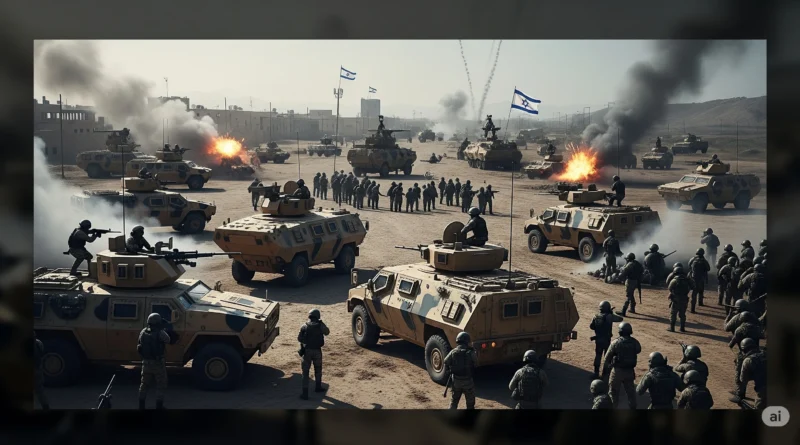Iran-Israel Conflict Status: Civilian Casualties Mount Amidst Intense Strikes
Tel Aviv/Tehran, June 16, 2025 – The long-standing animosity between Iran and Israel has erupted into a full-scale military conflict, marking a dramatic escalation in regional tensions. For the fourth consecutive day, both nations have engaged in fierce exchanges of missile strikes and airstrikes, resulting in significant civilian casualties and widespread international alarm.
The current wave of hostilities began on Friday, June 13, when Israel launched a major offensive, dubbed “Operation Rising Lion,” targeting Iran’s nuclear and military infrastructure. Israel asserted that these preemptive strikes were necessary to prevent Iran from developing nuclear weapons, a claim Tehran vehemently denies, maintaining that its nuclear program is for peaceful purposes. Israeli attacks have reportedly killed at least 224 people in Iran, with Iranian officials stating that the majority of these casualties are civilians.
In retaliation, Iran unleashed multiple waves of ballistic missiles and drones against Israeli cities, including Tel Aviv and Haifa. These retaliatory strikes have killed at least 24 people in Israel and wounded hundreds more. Reports indicate that some Iranian missiles successfully penetrated Israel’s formidable air defense systems, including the Iron Dome, causing damage to civilian infrastructure.
Key Developments and Current Status:
- Intensified Strikes: Both sides have continued to launch attacks. On Monday, Israeli forces reportedly struck military targets in Tehran, including the headquarters of the Quds Force, a branch of Iran’s Islamic Revolutionary Guard Corps (IRGC). Iran, in turn, has targeted major Israeli cities, with sirens and explosions audible across the country.
- Civilian Impact: The conflict has had a devastating impact on civilians in both nations. Iranian state media reports 224 fatalities and over 1,200 wounded since Friday, while Israel’s emergency services confirm 24 deaths and close to 600 injuries.
- Targeting of Media: In a significant escalation, Israel has reportedly struck the office of Iran’s state broadcaster, IRIB, in Tehran, disrupting live broadcasts.
- Leadership Statements: Leaders on both sides have adopted a defiant stance. Israeli Prime Minister Benjamin Netanyahu has vowed to continue “Operation Rising Lion” for “as many days as it takes” and claimed Israel is “in control of the skies over Tehran.” Iran’s President Masoud Pezeshkian has urged national unity against what he termed “genocidal aggression” and warned of a “more severe” response if the US does not restrain Israel.
- Nuclear Concerns: The International Atomic Energy Agency (IAEA) has confirmed no visible damage to Iran’s Natanz or Fordow nuclear enrichment sites. However, Iranian parliamentarians are reportedly considering withdrawing from the Nuclear Non-Proliferation Treaty (NPT), a move that would significantly escalate nuclear tensions.
- International Reaction and Diplomatic Efforts: The international community has expressed grave concern. The G7 leaders, meeting in Canada, have called for de-escalation, asserting Israel’s right to self-defense while emphasizing that Iran must not acquire nuclear weapons. US President Donald Trump has urged both sides to “make a deal,” but also suggested they might need to “fight it out” first. Russia has offered mediation, but neither Iran nor Israel has shown willingness for immediate talks while attacks persist.
- Travel Disruptions: Airspaces in the region, including Iran and Israel, have been closed, and numerous international flights have been suspended, impacting global travel. Pakistan has closed its borders with Iran.
The current conflict marks a dangerous new chapter in the long-standing rivalry between Iran and Israel, with fears of a wider regional conflagration growing daily. The absence of immediate diplomatic breakthroughs suggests the hostilities are likely to continue, with severe humanitarian and geopolitical consequences.

